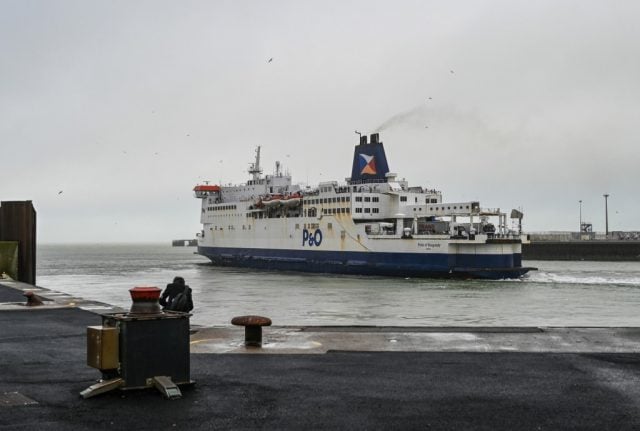The northern French port of Calais, a hub for cross-Channel trade and travel, was shut Thursday by striking workers who want higher pay to deal with Brexit-realted complications and coronavirus rules.
The strike began at 8am and is set to last for 24 hours.
“As the largest passenger port in continental Europe, the port of Calais is simultaneously facing the Covid-19 crisis, Brexit and the migration crisis,” the sector branch of the FO union said.
Port workers fear a drastic increase in paperwork and waiting times when Britain formally leaves the EU trading bloc later this year, especially if there is no deal on the terms of the exit.
The coronavirus crisis might also lead to a greater work load due to health checks and quarantine regulations.
In addition, the FO pointed out that a planned extension of the port next year would raise traffic by some 30 percent.
Anyone travelling by ferry to northern France on Friday was advised to check with the ferry company before heading to the port, and several services urged their customers to find alternative means of transportation or postpone their trips.
No ferries were operating, with vessels of the DFDS and P&O companies either blocked in Calais or across the Channel in the English port of Dover.
DOUVRES-CALAIS | un mouvement social a débuté à Calais à 8h00 aujourd'hui pour 24h. Les services ont été suspendus. Vous aviez réservé Calais ? Rendez-vous à Dunkerque pour être transféré sur le prochain départ. Vous venez de Douvres ? RDV au port pour être transféré à Dunkerque. https://t.co/piLqscOfoD
— UK in France (@UKinFrance) September 24, 2020
DFDS UK also advised its customers to postpone their trip if possible.
#PODOVER/#POCALAIS – Industrial action by French Unions has started from 24thSep08:00 CET for 24 hrs. Services have been suspended. In light of this, if you wish to postpone your trip, amend via your online account or our amendment form: https://t.co/L2gmBMqmFX
— P&O Ferries Updates (@POferriesupdate) September 24, 2020
P&O Ferries suspended its services as well and advised customers to postpone their trips while trying to transfer some of them towards other providers, “this is solely dependent on there being space available,” they wrote on Twitter.



 Please whitelist us to continue reading.
Please whitelist us to continue reading.
I have always been amused by the phrase mouvement social as being British strikes are more of a mouvement anti-social. I realsie that’s franglais but it makes me laugh